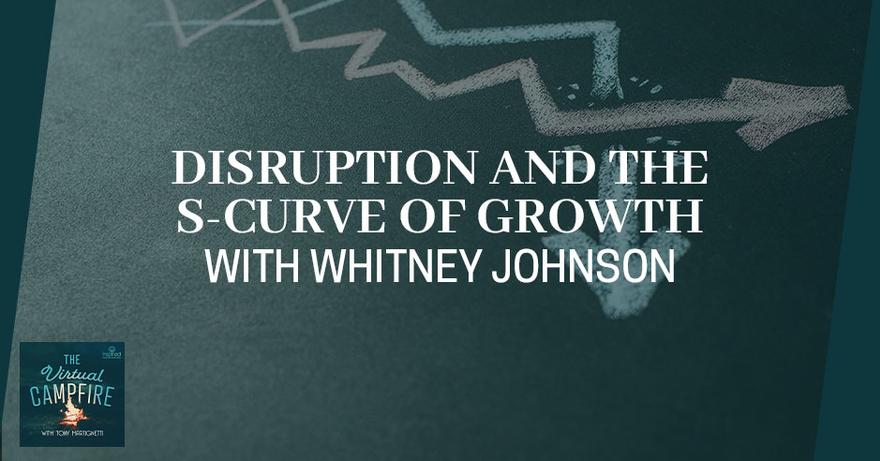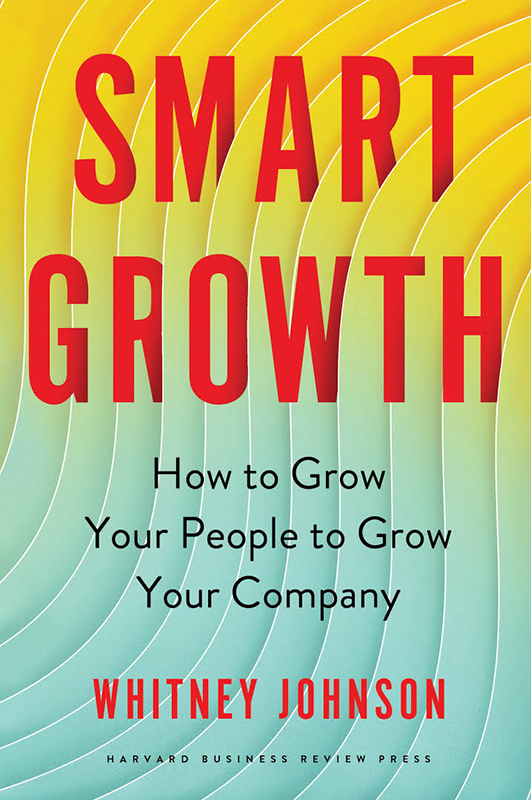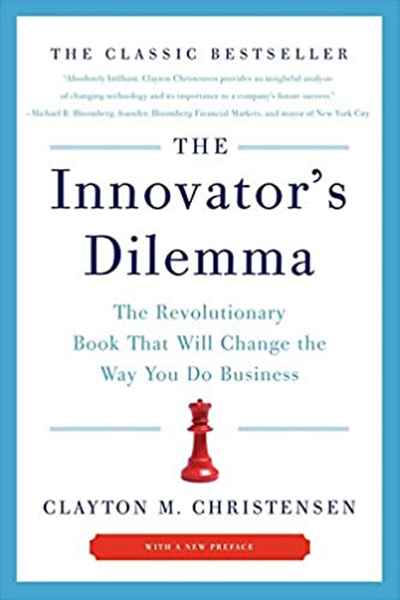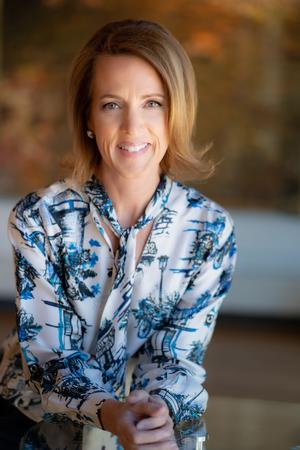Disruption And The S-curve Of Growth With Whitney Johnson Of Disruption Advisors

Disruption is a part of growth and transformation. We disrupt our daily routine to change for the better. Tony Martignetti dives deep into the topic with award-winning author, world-class keynote speaker, and CEO of Disruption Advisors, Whitney Johnson. Whitney discusses how learning music shaped her life, her ambition to succeed and where the odyssey that it took her on. Witness how Whitney learned to harness the power of disruption for growth and transformation as Tony helps her share her inspirational story the way only he can.
---
Listen to the podcast here:
Disruption And The S-curve Of Growth With Whitney Johnson Of Disruption Advisors
It is my honor to introduce you to my guest, Whitney Johnson. She's the CEO of human capital consultancy Disruption Advisors, an Inc. 5000 2020 fast-growing private company in America. One of the 50 leading business thinkers in the world is named by Thinkers 50. She is an expert at smart growth leadership. She's the author of a number of truly amazing books, including Dare, Dream, Do, Disrupt Yourself, and Build an A-Team.
 Her book, Smart Growth: How to Grow Your People to Grow Your Company, that was published is truly amazing. She's also the host of the Disrupt Yourself Podcast, which you have to check out. She has some amazing guests on there. I have just loved being a listener to this podcast. She lives in Lexington, Virginia with her family, where she loves to grow strawberries, raspberries and blackberries. I am so thrilled and honored to welcome you, Whitney.
Her book, Smart Growth: How to Grow Your People to Grow Your Company, that was published is truly amazing. She's also the host of the Disrupt Yourself Podcast, which you have to check out. She has some amazing guests on there. I have just loved being a listener to this podcast. She lives in Lexington, Virginia with her family, where she loves to grow strawberries, raspberries and blackberries. I am so thrilled and honored to welcome you, Whitney.
Tony, thank you for having me. I'm delighted that we're finally getting a chance to get better acquainted.
I'm so thrilled because you've been such an inspiration to me. Your books have been a blueprint for how to create growth paths for people and their journeys. I'm so thrilled to be able to reveal who you are to the audience and share some stories. That’s what we do in the campfire. It's about sharing stories around the campfire so that people can see the path that revealed you into the world.
The way we're going to do it is we're going to reveal your gifts into the world, through what are called flashpoints, the points in your journey that revealed your gifts into the world. As you're telling your story, we'll pause along the way and see what's showing up. You can start wherever you'd like, you can start in your childhood or further on your journey. We'll see what shows up. I'm going to turn it over to you and you can take it away.
First of all, I love that you are being so intuitive as we're having this conversation and seeing what comes out of my mouth and what comes out of your mouth. This is going to be very interesting. The first thing, as you're framing this of that question of what, how are our gifts revealed to the world? The first thing that comes to my mind is I was three years old and our family went to see The Sound of Music. It's an iconic film.

After the film was over, we came home, our family had this upright piano in our living room. I started picking out on the piano, Do Re Mi. I was entranced by the music and we have this piano, I could translate what I was hearing and what I heard onto this instrument. That was such an exciting moment for me. Even more exciting in many ways than learning to read is discovering this musicality of what I could hear and then I could translate that.
After that, I begged my mother to let me take piano lessons. This was a time when we didn't think of young children as being quite so precocious. If it were now, you would let a three-year-old take piano. Back then, they made me wait until I was seven. 3 to 7 is as an entire eternity. I did finally start taking piano when I was seven and much of my early childhood was dominated by music. I loved music. It was something that I cherished as a child.
That's the happy part of the story and then there's a big, long, slightly sad part of the story, which is I was talented enough and good enough on the piano that my parents inadvertently, the music became their dream and not my dream. One of the challenges is that when we start having what our children do well become ours and our own ego tied up in it. It takes it away from the child.
By the time I was 12, 13 entering puberty, wanting to individuate as a thirteen-year-old does, I didn't want to practice piano anymore. I didn't want to do music anymore. My parents wouldn't let me quit, but I don't think I really ever practiced. I did end up graduating in music in college astonishingly because my mother wanted me to. Once I graduated, I just said, “I'm not doing music anymore.”
Fast forward decades, and not doing music, but I would say over the last couple of years, one of the longings and yearnings that I've had is to go back to music. Even while I have not been doing music, it has definitely been a governing structure in my brain. When I think about writing a book and you just said that you enjoyed Smart Growth. If you think about it now within this idea or template of music. You'll see that I tried to create something that felt musical and had a musical structure to it.
Sometimes there are things that we really want and it's good that we don't get them because it's not what will allow us to be happiest and make our greatest contribution in life.
There was music in the background. There was a discipline that came with practicing piano because I practiced three hours a day when I was in college. The discipline, the musicality and structure, were all influencing what I do and how I show up. I have started playing piano again in the context of working to improve my voice when I speak on my podcast, I had someone say, “You might want to get some vocal coaching.”
The vocal coach turns out to also be a singing coach. She has me learning how to sing as cross-training. Which as you can imagine, emphasizes the music, the piano and bringing all those pieces together and the finding of voice, both metaphorically, figuratively and literally. Music is one of the big, exciting things that are happening in my life is finding that voice. It all goes back to being three years old and hearing, “Do Re Mi.”
It’s not uncommon for us to think that the first exposure we have to something that lights us up and inspires us. It may be hidden for a while, but it comes back. Part of it's because, as you said, your parents and your journey to getting into the music, studying it in school and all that, sometimes it becomes a chore. It becomes something that you have to do instead of something you want to do. It becomes something that you don't have that desire to pursue from a passionate perspective. Coming back to it just brings it that new fire. It re-sparks that connection to it.
There's something that I feel about that. I was an artist as a child and I put it away for so long. It's so amazing to hear that, but there's something I also wanted to ask and this comes right from your lexicon, which is to be a beginner again. Here you are, you became pretty skilled as a musician. I haven't heard you play, but I'm assuming that because you went to learn a lot of these things. You became really good at it, but then you put it away and now you're starting again as a beginner. It must be gratifying in some ways, but also daunting.
That is one of the challenges because there is some piece of me that says, “I used to be able to play that piece by list. I used to play that Beethoven Sonata and I played it well.” I can listen to a recording of my senior recital. There is that element of it that is lurking there. At the same time, there's also that confidence that comes up, “I can figure it out.” I will say that as I'm playing now, I don't focus on classical music.

I focus on listening to YouTube videos around, “How do you play a jazz chord progression or how do you learn this particular gospel lick on the piano?” I'm coming at it from that beginner's perspective of, “I've got that. I was at the top of that S-curve in terms of being able to play classical, but how do I approach this from my ear?” Going back to my ear, what did Do Re Mi sound like?
How can I learn by ear or by writing? Also, not putting pressure on myself to achieve a goal? To say, “I want to listen to this YouTube video on this topic and see where it takes me.” I was listening to a video of Paul McCartney talking about some of the songs that they composed like Hey, Jude. I was like, “That’s really interesting.” The thought and the composition process, and allowing myself to explore and discover music as if I am a beginner.
There's something about that also that has play involved. I know we're talking about playing music, but inserting play into everything we do allows us to not get so hung up on it being perfect. I love that mentality of, “I'm going to go on YouTube, check it out and see what I can do. I don't have to be perfect, but I can continue to see what I uncover when I explore.”
It's so hard to just say, “I'm going to play with this thing today and I may never go back to it again.” Being willing to do that is hard to do.
That mindset helps to change you from like, “I have to figure this out,” to more of a, “I want to and I'm going to play with it and see what happens and see what shows up.” Let’s get back into the story. What else happened along your journey? You spent most of your childhood into your college years thinking music, but what else? How did you get into the field that you got into?
I studied music as we just discussed. When I was about to graduate from college, I wanted to be a flight attendant. I was so excited. I went to American Airlines and I interviewed for the job, and it was so cool because they flew me on first class. I was twenty-something years old. This was in the ‘80s when being a flight attendant was still super glamorous. It's not quite as glamorous today as it was back then. They didn't hire me. I didn't even get a second interview and I was so disappointed. In retrospect, I'm so grateful that I didn't get that job because I wouldn't have enjoyed it. I liked the idea of traveling, but I wouldn't have enjoyed it.
That’s a flashpoint for me in the sense that there are sometimes things at the moment that we desperately want. The reality is I was qualified to do that job, but I didn't get it. For whatever reason, I didn't get it and how grateful I am that I did not get it. Sometimes there are things that we want and it’s good that we don't get them because it's not what will allow us to be happiest and make our greatest contribution in life. That was a quick little interlude.
How did I get into this? I had now graduated from college. I had gotten married because I got married in college. I know lots of people don't do that, but I did. My husband and I had moved to New York and he was getting his PhD at Columbia in Microbiology. We needed to put food on the table and I was the person, I was the designated food breadwinner. I start working and I didn't have any qualifications to speak of other than I'd done well in school.
I was a female. We’re in New York. It’s Wall Street, so my first job was as a secretary. I did this, but the next big flashpoint for me was that I was going to work every day. My mother had always worked and was actually very ambitious. She's basically a contemporary of RBG. I'm very grateful for RBG. I can see RBG through my mother's eyes and realize what RBG did for women. She made my life possible and our daughter’s lives possible.
Disruption is the mechanism. It's the thing by which we make growth happen. The S-curve of learning gives us a map and it gives us a simple visual of what growth looks like.
My mother was always very ambitious. As soon as I started working, I had the anchor of being married, so I didn't have to worry about, “How am I going to get married? Is someone going to want to marry me? Am I desirable?” All those things happened to me. I felt secure enough to go after the brass ring. Here I am going to work every day. I'm feeling secure at home. I need to work because we need money. My mother always worked. I'm going to work and listening to people in this bullpen saying, “Throw down your pompoms and get in a game.” I was a cheerleader in high school and was offended by that. Not really, but sort of.
All of that just kicked in. I thought, “I'm going to work, why would I make X when I can make 10X?” Something flipped for me. I was like, “I'm going for this.” It was against a lot of odds. I just started taking classes at night. I had a boss who believed in me and promoted me from being a secretary to a banker. That was a really important flashpoint for me because I disrupted my thinking. I started to think about what was possible and what do I want? I allowed the first time for my ambition and what I wanted to accomplish to not be hidden behind being a cheerleader, popular or flight attendant. It was like, “I want this. I want to work on Wall Street and do this thing.” That was an important turning point for me.
I want to stop for a moment just to say it starts with you having a dream and feeling like you can be more than what everyone thinks you can be. We get put into boxes all the time. Everyone does. We have to break free from all those labels. That’s where disruption happens. It's the ability to see that, “I don't have to stick into this mold of what everyone has programmed us to think we are.”
You said something that has been on my mind a lot lately. That’s about believers. Oftentimes having someone who believes in you, before you believe in yourself can be the catalyst that we need to move from thinking about it and doing it. It's that one person who says like, “You can do this. You have the ability to be that person you want to be. That dream was possible.”
In this instance, the various characters, supporters or the ecosystem was my mom who had modeled that behavior, and she hadn't been able to achieve it. There's a great quote from Carl Jung that says, “The greatest influence on a child is the unlived life of a parent.” My mother was there. I had a husband who, contrary to many individuals at that time, was just like, “You can do whatever you want to do, I'll support you.” At home, there was no resistance. Then I had a boss who was willing to promote me, which was also unusual.
I remember, as you're saying this, there were a few times when I would go to church and I would be talking to friends at church of like, “I'm doing this or that.” I remember a few times, they were looking at me and talking to me like, “You go.” I had this sense of you go. I think that supported me in a really important way.
Part of it is now we get to be, and I say we because this is what I love to do. I love to champion people because we all need to champion other people so that they can see that we are capable of more things. They can see things that are more possible for them because oftentimes, we're holding ourselves back and not allowing ourselves to see our full potential. We need to start by seeing that, “What is the inventory I'm coming from? Where am I coming from so that I can move from where I am now to where I want to be?”
You just said something that brought me to mind. This is important, especially in the context of what you’re talking about now and our gifts. As I said in high school, I was a cheerleader and for a long time, I dismissed that because I wanted to be in the game. There was something about feeling sidelined. That’s part of the reason why for many years I resisted becoming a coach is because I didn’t feel like I was on the sidelines.

If I think about it, I am a cheerleader at heart. There is something to be said, as you're having this conversation with your readers about bringing our gifts to the forefront. Sometimes our greatest gifts are a part of ourselves that we have separated from for whatever reason. We don't want to claim them. It’s important for people, for me, for you, who are reading to say, “What are some of those gifts that I have set aside that I need to claim? If I'll claim them, that's how I'm going to be most happy, but that's how I'm also going to make my greatest contribution.”
Every time I listen to you, you bring these great nuggets of wisdom. That is exactly what this is about. This ability to own your gifts and sometimes you need somebody to allow you the space to reveal them. That’s what coaches do. They give you the space to explore and then reveal those gifts. I want to take the next step in your journey. What was the next flashpoint? You've so many things in your journey that we could be here for hours, but what would you like to highlight as the next moment that puts you into your trajectory of what you're doing?
The next big one is this realization. Here I am working on Wall Street. I've worked very hard to be successful. After being in banking, then I was an equity analyst. I worked at Merrill Lynch and I was responsible to say, “These stocks to buy and to sell.” It’s good at building financial models and picking stocks. It felt very powerful and very rewarding. I was good at spotting momentum. I ended up Cofounding the Disruptive Innovation Fund with Clayton Christensen, who some people will know. He wrote a book called The Innovator’s Dilemma. If you've heard of Disruptive Innovation, that's his term.
I ended up cofounding an investment firm with him and his son. We were investing in both publicly traded securities and doing venture investing. One of the things that I had discovered while I was still working on Wall Street in New York, is that I was realizing that I was more interested in people and the momentum of people than I was in the momentum of stocks.
There was starting to be this pattern of I'm working on Wall Street and I'm not thinking about what stocks’ going to go up. I'm thinking of people like stocks, “How do I help this person build momentum?” This is when American Idol was really popular and Tom Peters came out with The Brand Called You. I'm now having this experience of people, momentum, stocks. Then when I read Innovator's Dilemma and I'm thinking about disruption, I start thinking, “You can apply this to people too. People can disrupt themselves.”
I’m applying disruption to people and then I'm taking the S-curve. I'm thinking about not how do groups change and how do innovations get adopted, but how do people change? How do people grow? For me, I kept taking these ideas that were theories and thinking the way to operationalize these are for people and apply them to us as individuals. Here I am, I'm working with Clayton, it's 2010, 2011. I've now written an article in Harvard Business Review and on Disrupt Yourself.
Clayton keeps saying to me, “I think you should go do this other thing.” I kept saying, “No, I want to be here. I want to invest.” We finally were just like, “You need to go do this.” It was hard to do it because my ego was wrapped up and still doing this thing, and yet this was my gift. This was my calling. This is what I was supposed to be doing, but it was hard to do that. It was hard to walk away from that and make that decision to do that.
That’s the other flashpoint and we're definitely sensing a theme here. Sometimes the things that we are called to do, in the biblical words were a bit like Jonah and we run away from them. We need to be aware of the truth-tellers around us, be aware of the people who are telling us, “That’s your gift. You need to use that gift. You're a cheerleader at heart. You care about the momentum of people. Now figure out what that's going to look like and how you are going to do that.” For me was that next flashpoint of recognizing that I didn't want to do stocks. I wanted to talk about people and how people grow. That brings me here to this very moment.
Management is the noblest of professions. When we manage people, it is a responsibility. What are we doing to make sure that we are blessing the lives of the people who work with us?
I think about this idea that you basically had to disrupt yourself to get into disrupting how people grow. That moment must have been so remarkable. The idea of taking these concepts that were at the time, maybe you're thinking like, “This is strange. How am I taking this disruption of markets and disruption of people? How is that even related?” You just started to see the light come on. You’re like, “This is it. This does make sense.” Luckily you had someone like Clay who would support you and say, “That does make sense.”
Back to this idea of support, what a gift, right? That he was willing to support me and willing to say, “That makes sense,” and be encouraging of me to go do that.
You started this process of getting into writing about it, writing your first few books. Even now, here we are, you've just launched Smart Growth. This book is taking this concept of the S-curve of learning and disruption to the next level. Maybe you want to share a little bit about what the book's about from your own perspective.
In my prior two books, there was Disrupt Yourself. That was applying the theory of disruption to people. Then there was Build an A-Team, where I was looking at it from a team perspective. Smart Growth is the third in the series. Although, you can read this without reading those books. There was this idea of this S-curve of learning that was always in the background, like running the script, but it was never the lead actor in a play.
As I would talk to people about this work, I remember one conversation I had gone on Dan Pink's Pinkcast. He does these short little videos. He said, “What do you want to talk about?” I said, “What about this?” I finally said, “The S-curve, that's it. Let's talk about that.” I kept on having people say to me, “I want to talk about the S-curve. I've been telling all these people about the S-curve.” I realized that disruption while very valuable, it's the mechanism, it's the thing by which we make growth happen.
The S-curve of learning gives us a map and it gives us a simple visual of what growth looks like. I also remembered very clearly, and the reason why people kept on attaching themselves to this is Alexander Osterwalder, who is the business model innovation. He said to me, “When you write a book, you should be able to write your book and pictures. You should have a picture for chapter 1,2 and 3.” I thought, “This meets that criteria.”
That's what this book does. We're in this era right now where we all want to grow. We're coming out of the pandemic, post-traumatic growth. You come through this period of severe stress, which by the way, I do not think it is the Great Resignation. I think it is the Great Aspiration. We are aspiring to more. This book, what it does is it gives you a map of what growth looks like. You know where you are and you know what's next. You know whether you're at the launch point of the curve, the sweet spot of the curve, and mastery along the curve.
All of those places along the curve have specific things that you want or need to do, whether it's you need support at the launch point or in the sweet spot, you need focus or in master, you need a challenge. Those help to navigate the curve and to go back to your lexicon in your work. Climbing the right mountain, you know where you are on the mountain. Once you orient yourself, then you're going to be able to move up the mountain more quickly. That’s what this book does.
I think it’s so great how in this book, you brought in those themes of what you need to tap into at the different stages, being the collector and the explorer. That adds another layer to it. I found that to be powerful. I've used this concept in my coaching for years of using the S-curve because I think it is a great visual tool. I think this is going to add another layer to the coaching process with people.
You know this because you've now listened to the book. The idea was is that you've got the whole narrative of the book, which is to you, the individual because the fundamental unit of growth is individual. There are these interludes that talk about how you can use it as a coach or a manager, but it doesn't mess with the narrative of the book.

I wanted to take a moment out of our conversation about Smart Growth to look back at your story and think, what are the 2 to 3 lessons that you've learned about yourself as you look back that you want to share with people, the personal lessons that have been foundational for you?
I start the book by saying, “Growth is our default setting.” I have always wanted to grow. I've always wanted to make progress. It’s this hunger that I have, and I actually believe that everybody does. We all want to make progress. We all want to learn. If I think about the story of the music, being on Wall Street, disrupting myself, and moving on from investing to thought leadership and building Disruption Advisors.
All of those moments were all about wanting to make progress to grow. One of the things that I'm continually thinking about and my husband said this to me, he said, “You have a superpower of wanting to grow and you have a superpower of you have this incredible work ethic. Remember that that might not be everybody else's superpower, so it’s important to be patient with people.”
If there’s something that people tell you is your superpower. If you find yourself being impatient with people, that is a pretty good indication that you have a superpower. You have to figure out how to be patient, but also recognize that you have a superpower. That’s one thing is that idea of growth. The second thing I would say is one of the chapters is an ecosystem and this idea that you and I need people around us that help us grow. We all have keystone species that people, without whom, we couldn't grow.
It’s been interesting interviewing people because so often, they've been teachers and bosses that make growth possible. The other thing that I'm thinking more and more about as I grow and mature is this idea that I am a Keystone species for people around me, for my children, husband, and every single person that I work with and I come in contact with. How do I make sure that as I am drawing resources from people around me, whether it's time, money, energy or attention that whatever they are giving to me, there's an ROI in the sense of, I am giving back into the ecosystem? I am a Keystone species within the ecosystem of people around me.
Those are two things because if you look at that story of being a child, learning to play the piano, of my start on Wall Street, of Clay, there were all people there that were encouraging and saying, “You need to go do this.” I'm also very well aware that there are people around me that I can either encourage or discourage them.
I think the older we get, the more aware we become of how much influence we do have on other people. It is a sobering responsibility. I remember this one quote from Clay, he said, “Management is the noblest of professions.” It's true. When we manage people, it is a responsibility. What are we doing to make sure that we are blessing the lives of the people that work with us?
Hearing you say that, lands with me and I feel that responsibility. It’s something you don't take lightly. You don’t just stumble through it. You have to be intentional and make sure your intentions are clear when you're sharing with the people around you. I can talk to you for hours. I do have one last question that I always ask my guests. I'm looking forward to what you come up with on this one. What are 1 or 2 books that have had an impact on you and why?
I’m going to disrupt the process and give you four books. I'd say the first one is The Innovator's Dilemma. I'm sure you're not surprised by Clayton Christensen. The second one is books of scripture, like the Bible and the book of Mormon. I read those every day. It would be disingenuous to say that those have not had an outsize influence on me. I'll give you two more. The next book is a book called Stage Performance by Livingston Taylor. I had him on my podcast. He's the brother of James.
I loved this book. He talked about stage performance and as a speaker, I found it fascinating. One of the things that I loved is he said one quote, “When you make a mistake, if you're willing to forgive yourself, you smile and move on. Then the people in the audience know that you will forgive them too.” Last one. This book, The Carrot Seed. Do you know it?
No, I don’t.
Shall I read it to you really fast? It’s called The Carrot Seed. It's 60 years old, so we'll just do a storytime. A little boy planted a carrot seed. His mother said, “I'm afraid it won't come up.” His father said, “I'm afraid it won't come up.” His big brother said, “It won't come up.” Every day, the little boy pulled up the weeds around the seed and sprinkled the ground with water, but nothing came up. Everyone kept saying it wouldn't come up, but he still pulled up the weeds around it every day and sprinkled the ground with water. Then one day, the carrot came up just as a little boy had known it would.
That’s what we needed to hear. I think you saved the best for last. Whitney, this has been so amazing to have you on the show. I'm just so grateful for this time together, but all of your thought leadership, your leadership, and just the way you show up in the world is really powerful. Thank you.
Tony, thank you. This was such a pleasure to just see where we went. Thank you for inviting me to your campfire to tell stories.
Maybe someday we'll have you back for the next book, so we'll see. You have more stories to share, I'm sure. I want to make sure that people know where to find you. First of all, their books are available everywhere on Amazon, but where can they find out more about you?
Definitely the book and the Disrupt Yourself Podcast, you can get that on my website www.WhitneyJohnson.com. I think that's the easiest.
Lastly, we talked about doing a little promotion.
A little giveaway. I am going to provide you with three copies of my book, Smart Growth. The question is, what do you want people to do in order to get a copy of the book? Are you going to do a random giveaway or what?
For the first three reviews on the show, they have to send an email with the review. They'll get those books.
There you go. That's perfect because everybody, you’ve got to leave reviews. Reviews make a difference for people. I would love to do that. Thank you again for having me.
Thank you and thanks to the readers for coming on the journey. I know you're leaving truly inspired and so many great insights. That’s a wrap. Thank you all.
Important Links:
- Disruption Advisors
- Dare, Dream, Do
- Disrupt Yourself
- Build an A-Team
- Smart Growth: How to Grow Your People to Grow Your Company
- Disrupt Yourself Podcast
- The Innovator’s Dilemma
- Disrupt Yourself - HBR Article
- Stage Performance
- The Carrot Seed
About Whitney Johnson
 Whitney Johnson is CEO of the tech-enabled talent development company Disruption Advisors, an Inc. 5000 fastest-growing private company in America (2020). One of the top ten business thinkers in the world as named by Thinkers50, Whitney is an expert at smart growth leadership. Whitney has worked at FORTUNE 100 companies, and as an award-winning equity analyst on Wall Street. She co-founded the Disruptive Innovation Fund with Harvard Business School’s late Clayton Christensen. She has coached alongside the renowned Marshall Goldsmith, selected by Goldsmith in 2017 as a Top 15 Coach out of a pool of more than 17,000 candidates. Whitney understands how companies work, how investors think, and how the best coaches coach.
Whitney Johnson is CEO of the tech-enabled talent development company Disruption Advisors, an Inc. 5000 fastest-growing private company in America (2020). One of the top ten business thinkers in the world as named by Thinkers50, Whitney is an expert at smart growth leadership. Whitney has worked at FORTUNE 100 companies, and as an award-winning equity analyst on Wall Street. She co-founded the Disruptive Innovation Fund with Harvard Business School’s late Clayton Christensen. She has coached alongside the renowned Marshall Goldsmith, selected by Goldsmith in 2017 as a Top 15 Coach out of a pool of more than 17,000 candidates. Whitney understands how companies work, how investors think, and how the best coaches coach.
An award-winning author, Johnson teaches the S Curve of Learning to managers and companies as both a keynote speaker and a frequent lecturer for Harvard Business School’s Corporate Learning. She is a LinkedIn Top Voice (2020) with 1.8 million followers. Her course Fundamentals of Entrepreneurship has been viewed more than 1 million times.
An innovation and disruption theorist, Whitney is a frequent contributor to Harvard Business Review and MIT Sloan Management Review. Author of the bestselling Build an A Team (a Financial Times Book of the Month) and Disrupt Yourself, fittingly described by Publisher’s Weekly as “Savvy . . . often counterintuitive . . . superb.” She hosts the weekly Disrupt Yourself podcast with guests including Brené Brown, Adam Grant, Susan Cain, and General Stanley McChrystal.
Whitney was co-founder of the Disruptive Innovation Fund with Clayton Christensen. Her role included fund formation, strategy, and capital raising. They invested and led the $8 million seed round for South Korea’s Coupang ecommerce platform, currently valued at $50 billion.


0 comments
Leave a comment
Please log in or register to post a comment